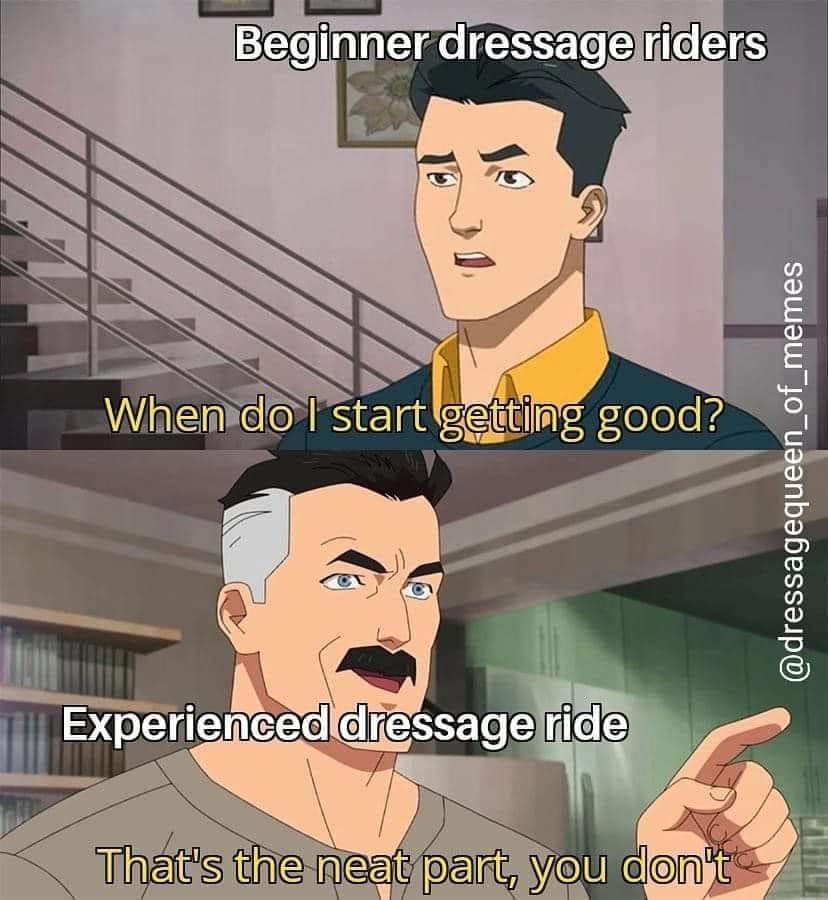I’ve done one major thing to improve in the last 18 months year and lots of little tweaks for me and the horse.
Major thing: lost 45 pounds with Noom. The only downside is that I did go through a period of really crappy riding after I lost about 30 pounds. I just didn’t know how to handle my body in the saddle for a while. I think I was relying on all that ballast to keep me sitting at the canter (for example) and had to figure out what to do now that the ballast was gone! Got over it, now is very OK and glad I decided to lose the weight.
Little tweaks: new saddle for me and the horse, several subsequent fittings as I lost weight and he got in shape. Weekly lessons. Getting horse’s issues (allergies mostly) under control. Getting video’d at shows so I can see how I ride in competition. Practice, practice, practice - 4 rides a week. New bridle. Considered every hint clinicians, dressage instructor, and Arab trainer made and incorporated most of them. Tried to be open to all constructive input.
It all paid off - we had one of our best scores at Training at Arab Sport Horse Nationals and were 19th out of 43. It was big, big fun!
Bottom line: be willing to learn and be willing to work!


